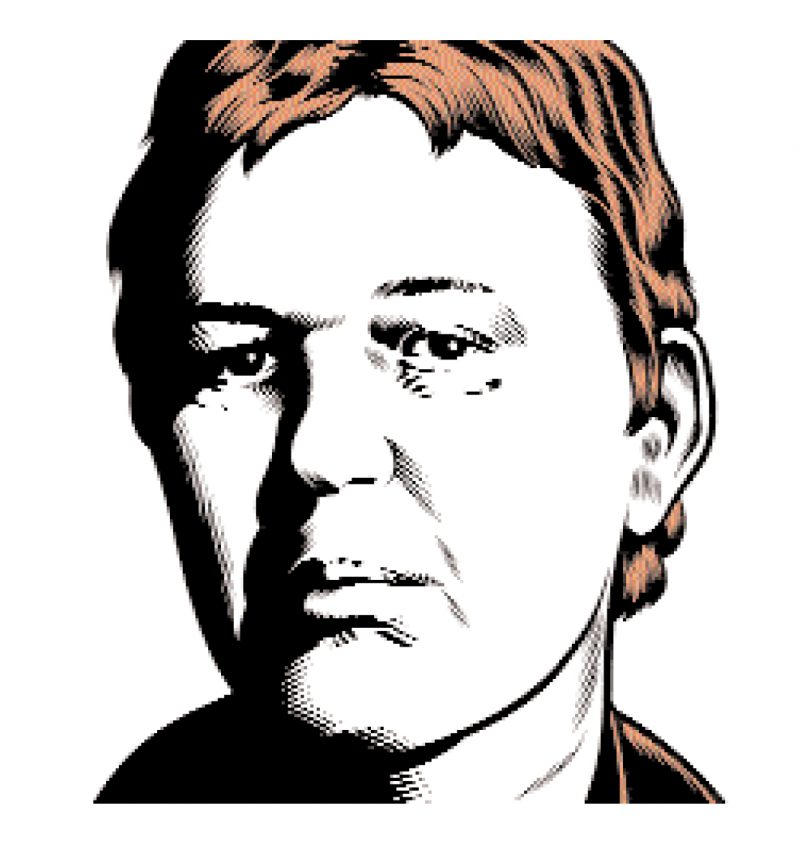Robert Pollard has written an estimated ten thousand songs, both on his own and with his band, Guided by Voices. It’s difficult to imagine what ten thousand songs might look like, or how a person could carry all that music around for so long. It would take a person with courage and fortitude, I think, and the ability to kick one’s leg straight up on a downbeat while swinging a microphone cable in Roger Daltrey–sized arcs. It would take a person who has been focused on songcraft for twenty-plus years—a person capable of generating pure, devastating pop music at the rate most American men shed skin cells. Robert Pollard is that person, crammed to the heart with song.
Guided by Voices emerged like a bottled message out of the slick sea of early-nineties post-rock with an intricate and deceptively fragile record called Bee Thousand (Scat Records, 1994), recorded entirely on a four track, which sounded like the brilliant, faded home demos of a forgotten British psychedelic band from 1968. Though it was generally received as a debut, the band had actually been holed up in Dayton, Ohio, since the early eighties, and had already recorded six albums in isolation from the cultural whims of the world. Listening to Bee Thousand, then, was like uncovering an artifact from a remote, hinterland village, a land ruled by superstition and witchcraft—startling and enlightening, and maybe a little terrifying. Most importantly, though, the album managed to rock, effortlessly—despite (or maybe because of) the prohibitively crude nature of the recordings and the endless queue of perfectly executed hooks.
In the years since, Pollard has released well over a dozen more records. He’s been so willfully prolific that, for a while, it seemed as though he would simply go on releasing songs forever, without interruption, maybe into the grave, but this past May he announced that the new Guided by Voices album, Half-Smiles of the Decomposed, would be the band’s last. It is an incredibly diverse and heavily textured swan song—easily the band’s best record since 1996’s Under the Bushes, Under the Stars—in short, a wild, passionate suicide note from one of the all-time greatest rock acts in Western history.
—Matthew Derby
LAND OF THE DEVIL WIND
THE BELIEVER: You live in Dayton, Birthplace of Flight and home of the Wright-Patterson Air Force Base, which raises the question: have you ever seen any experimental aircraft of any sort in the skies over your city?
ROBERT POLLARD: I’ve had friends that have seen things. Sometimes things that have even come really close to them, but I’ve never seen anything like that myself. I’ve seen things zip by really quickly...
You have reached your article limit
Sign up for a digital subscription and continue reading all new issues, plus our entire archives, for just $1.50/month.
Already a subscriber? Sign in





